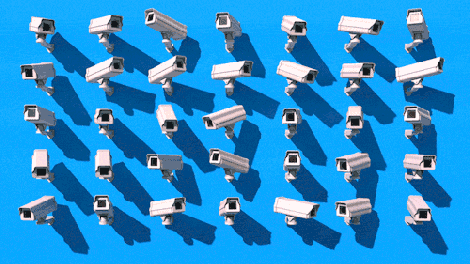By Colt Bradley
Reviewed by Emily Chandler and Davis Topping
Media outlets today are always trying to convince the populous of something; whether it is why you should support a social issue, why you shouldn’t vote for a certain politician, or why you should buy a certain stock, this is accomplished through writing that possess the rhetorical qualities of Kairos, Ethos, Pathos, and Logos. Kairos is the quality of being of relevant, Ethos is the credibility of the author, Pathos is when an arguement is focused on eliciting an emotional response from the reader, and lastly Logos which is the quality associated with arguments that are based on evidence and logically sound premises. That being said, no matter how well structured an argument is, it can always fall victim to fallacies due to the fact an argument’s main goal is to persuade you of something. Additionally, today’s articles should be analyzed under a social microscope to figure out how they might be criticized when it comes to topics like race, class, gender, and other forms of social stratification. The two articles that will be examined in this paper are “House Extends Surveillance Law, Rejecting New Privacy Safeguards” by Charlie savage, Eileen Sullivan and Nicholas Fandos of the New York Times and “The Chilling effects of surveillance” by Jillian York of Aljazeera.

The collaborative New York Time’s piece focuses on the actions of the House of Representatives. What’s important to note about this article is that it gives an account of the events, of the vote and the aftermath, however, the article focuses on the discord between republican lawmakers possible hinting at a leftward bias. The first rhetorical quality that needs to me examined is whether or not is possess Kairos, the article was written in the same time period of the house’s vote which gives it the quality of Kairos. Second is Ethos, the main writer of the article is a Pulitzer prize winning journalist for his numerous pieces about politics and national security policy, unfortunately the other writer’s credentials are not viewable. That being said it could be argued that the writers of this article have good ethos due to the credentials of the main author and the fact that the article is mainly just a retelling of events which does not require a special skillset to do. The next rhetorical qualities are more inherent to the structure and style of the writing itself, those qualities are Pathos, which deals with arguments that are designed to elicit emotional responses and logos which are arguments based on arguments that use data and carefully formulated premises. This particular article is more logos oriented, most of the information is based on conclusions drawn from public information and is presented in the form of a retelling of events. However, the article talks about events that could elicit emotional responses, this can be expected whenever there is a discussion about secret governmental surveillance of civilian populations, this would mean that while the article is more logically oriented it could also have a hint of pathos oriented material. It’s also important to mention that a distanced reading of this article did not reveal anything useful, there were no identifiable usage of “buzzwords” or phrases that could be interpreted in any rhetorical way.

The next important aspect of the article that should be examined is the possibility of any logical fallacies, With the majority of the article being a retelling of events there are no identifiable logical fallacies. The only fallacies that may be spotted within the article is the straw man fallacy and hasty generalization and even then, it’s a stretch. The evidence that suggests that the straw man fallacy is present in the article is that it seems to favor the idea that government surveillance is not conducive to any type of benefits. Additionally, the article briefly mentions that some politicians support government surveillance if it protects the population from terrorist threats however, it never goes into much detail about this side of the argument, in regard to the hasty generalization there is a piece in the article that suggests that since the house did not vote to change surveillance laws the same will most likely happen in the senate when in reality there have been many examples of bills passing through one part of the legislative branch, but not the other.

Lastly, with today’s society being stratified the way it is, it is important to analyze articles through a lens that allows the reader to understand how the race, gender, and class of the author might affect their writing and how it may affect the reader’s interpretation of the writing as well. Of the three writers, two of them were white, whereas the other writer’s information was not viewable. Additionally, out of this group there was only one woman. On the topic of class, being that all three are writers for a prominent news outlet its most likely safe to assume that they are well off and in the middle class. That being said, the only way that those factors could have influenced the writers is that they may not have expressed the gravity of the situation of government surveillance because of their race, the reason that this is important to note is because there are those who have criticized the government for the over surveillance of minorities. In regard to the article itself, there are no identifiable features that could lead to the conclusion that the article was engineered to be for any one audience in terms of race, class, or gender.

The second article by Jillian York focuses on the effects of mass surveillance from psychological effects on the population to national wide effects like a lagging economy. As with the previous article it is necessary to examine the rhetorical qualities that may be present in this article such as Kairos, ethos, pathos, and logos. First it must be determined whether or not the article possess Kairos, this article was written in the aftermath of the Edward Snowden leaks in 2013, which gives the article the quality of Kairos. Next is Ethos, Jillian York is described as a writer and activist who focuses on technology and politics by the Aljazeera website. Despite her long list of works she doesn’t have any credentials specific to this topic, because of this it could be argued that Jillian does not have good Ethos to discuss the subject. Now that the rhetorical qualities associated with the author and the time in which the article has been written have been discussed its now important to discuss the qualities that are inherent to the article itself. Because Jillian’s article focuses on the effects of surveillance and how they might affect the everyday person, coupled with a section that focuses on how surveillance effects minority populations more than white populations it could be argued that the article is very Pathos oriented which would be in contrast to the previous article. Lastly a distanced reading of this article revealed that towards the end of the article the usage of the word freedom spikes, additionally the end of the article focuses on the how this kind of surveillance is unconstitutional which undoubtedly will elicit an emotional response from the reader due to how important the constitution is in our freedom loving culture.

On the topic of fallacies, one could argue that Jillian’s point about mass surveillance leading to negative psychological effects on the populous is an example of the weak analogy fallacy. The reason for this is because Jillian compares the tactics employed by the Soviet Union and their satellite state of East Germany against their own populations to the digital monitoring of American citizens in contemporary times. This is clearly a very far-fetched comparison, the Soviet Union and their puppet governments were brutal regimes that brutalized their own citizens with physical assault and intimidation, this is obviously not even close to the digital monitoring that is practiced by the united states and to say so is absurd. Additionally, Jillian makes a hasty generalization about the U.S government as a whole towards the end of the article, she claims that the prosecution of whistleblowers suggests that the U.S government has malicious intent rather than trying to protect its secrets from foreign adversaries. Lastly in regard to race, gender, and class when discussing the author and the audience, Jillian does a good job accounting for different types of people that may read the article by talking about how mass surveillance effects different kinds of people. By doing so, she alleviates any burdens that may come with being a white author writing about an issue that effects all different kinds of people. Lastly a distanced reading of this article revealed that the article shifted to the topic of freedom towards to end of the article, this was evident by the spike in the use of the word “freedom” at the end of article which would most likely elicit an emotional response, or a response based on pathos out of the reader.

Reviewing these in character did not lead to any groundbreaking revelations about what my character would consider to be fallacious arguement or an arguement worthy of a social critique, I believe that Jim would look for the same fallacies and openings for social critiques as any other person would because he is an everyday person, additionally because of his experience in dealing with his nemesis, Dwight’s overly aggressive way of problem-solving on a weekly basis. I expect that as Jim I would be well informed and educated enough to recognize bad arguments and the possible ways those arguments may be interpreted in regard to race, class, and gender. To conclude I would say that this analysis gave insight into the problem mainly in the form of how this issue effects many different kinds of people across multiple walks of life. This relates to the group mission because as Jim I have had to deal with similar surveillance-based situations in the past that involved the entire office which was made up of a very diverse group of people and with that experience I could ensure that all aspects of the surveillance problem would be resolved not just the parts that effect the majority of people.